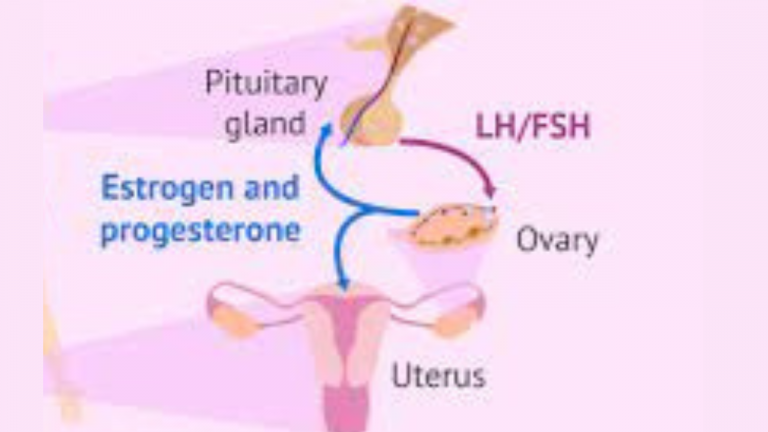Understanding Hormones Involved in PCOS

Polycystic ovary syndrome (PCOS) is a complex hormonal disorder that involves a variety of hormonal imbalances. The key hormones involved in PCOS include:
1. Androgens (Testosterone and DHEA-S):
Androgens are often referred to as “male hormones,” although they are present in both men and women.
Women with PCOS typically have higher levels of androgens, such as testosterone and dehydroepiandrosterone sulfate (DHEA-S), than women without PCOS.
Elevated androgens can lead to symptoms like hirsutism (excessive hair growth), acne, and male-pattern hair loss (androgenic alopecia).
2. Insulin:
Many women with PCOS have insulin resistance, a condition in which the body’s cells do not respond efficiently to insulin. This leads to increased insulin production by the pancreas.
Elevated insulin levels can stimulate the ovaries to produce more androgens, contributing to hormonal imbalances and PCOS symptoms.
Insulin resistance is often associated with weight gain and metabolic disturbances.
3. Estrogens:
Estrogens are the primary female sex hormones. Women with PCOS can have normal or elevated levels of estrogen.
Estrogen plays a role in regulating the menstrual cycle and the growth of the uterine lining (endometrium).
4. Progesterone:
Women with PCOS often experience irregular or absent menstrual cycles, which may be related to insufficient production of progesterone during the luteal phase (the second half) of the menstrual cycle.
Progesterone is responsible for maintaining the uterine lining and is necessary for a regular menstrual cycle.
5. Follicle-Stimulating Hormone (FSH) and Luteinizing Hormone (LH):
FSH and LH are pituitary hormones involved in regulating the menstrual cycle.
In some women with PCOS, there is an imbalance in the ratio of FSH to LH, with LH levels being higher than FSH levels. This can contribute to ovarian follicle development and androgen production.
6. Anti-Müllerian Hormone (AMH):
AMH is produced by small follicles (cysts) in the ovaries, and elevated AMH levels are a characteristic feature of PCOS.
High AMH levels are associated with an increased number of small, immature ovarian follicles and can contribute to irregular ovulation.
7. Gonadotropin-Releasing Hormone (GnRH):
GnRH is produced by the hypothalamus and controls the release of FSH and LH from the pituitary gland.
Dysregulation of GnRH secretion can affect the balance of FSH and LH and contribute to PCOS symptoms.
Understanding these hormonal imbalances is crucial for diagnosing and managing PCOS. Treatment approaches for PCOS often target specific hormone-related issues, such as reducing androgen levels, addressing insulin resistance, and regulating the menstrual cycle. Treatment plans are tailored to each individual’s symptoms and goals, and they may include lifestyle modifications, medications, and hormonal therapies. Consulting a healthcare provider with expertise in PCOS is essential for proper diagnosis and management.



